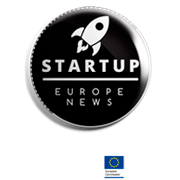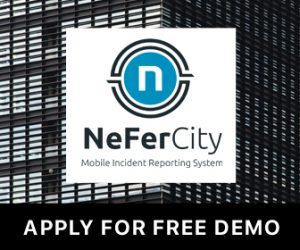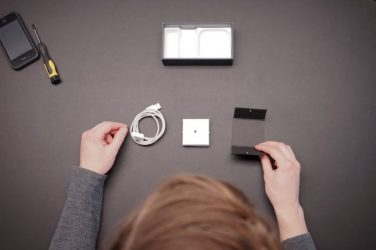28 innovators at the Ideas from Europe semi-finals
TALLINN â On November 22, entrepreneurs from all around Europe will present their innovative idea with a big potential societal impact. 28 innovators from all European member states will attend the semi-finals from Ideas from Europe in Tallinn and share their solution to the Global Challenges.
From tackling food wastage, using innovative technology to diagnose health problems, cures for the common cold and antibiotics resistance, smart uses of renewable energy, diminishing CO2 emissions, to programmes for children with Autism, those who are bullied and for refugees; these entrepreneurs have come up with innovative solutions to the global challenges that we face each day. This competition puts a spotlight both on the entrepreneurs and their ideas to help them grow their business and make an even bigger impact.
Ideas from Europe
These ideas not only deserve a stage, but also the help to develop themselves and scale-up. Ideas from Europe is an initiative of the European Commission and the Dutch Ministry of Economic Affairs and Climate that facilitates joint development of innovations with societal impact. âWe continuously search for and validate innovative solutions to global challenges, connect innovators to stakeholders and create transparency in order to free-up the road for scaling-up process,â says Sonja van Meerbeek, director of Ideas from Europe.
Semi-finals
This search results in a biannual event called Ideas from Europe. The semi-finals of this second edition will take place on 22 November in Tallinn, Estonia. Each European member state will be sending an innovative entrepreneur with a ground-breaking business idea as their representative to take part in the semi-finals that is held during the SME Assembly.
The 28 innovators will deliver a three-minute pitch before a renowned jury which this year consists of:
- ¡ Kaupo Reede (Director of Economic Development Department at the Estonian Ministry of Economic Affairs and Communications)
- ¡ Kristin Schreiber (Director for COSME Programme and SME Policy, European Commission)
- ¡ Ulrike Rabmer Kollen (President of the UEAPME General Assembly)
- ¡ Cees Vermaas (CEO of CME Group Europe)
The jury, as well as the audience, will choose nine ideas to be showcased during the finals in The Hague in April 2018. There they will get the chance to further elaborate on their ideas and get connected to the stakeholders they need to further develop or scale up their solutions.
Wildcard
Right after the semi-finals, the broad public in Europe and elsewhere in the world will have the change to choose a 10th finalist with a wildcard. They can vote online for one of the other 19 solutions that werenât chosen by the jury. The innovator with the most votes will also go to the Knightâs Hall in The Hague, The Netherlands.
Programme
The semi-finals of Ideas from Europe in Tallinn will start on 22 November at 16.00 UTC (GMT+2). The whole programme will be broadcast via a live stream. On 23 November at 09.00 UTC the nine best ideas will be announced and the online public voting will open! The live stream can be viewed via ideasfrom.eu.
Speakers
Do you want to know more about the entrepreneurs and their ideas? Take a look at the attachment or explore the website of Ideas from Europe to see who they are and what their idea is about.
Speakers Ideas from Europe semi-finals 2017/2018 22 November, Tallinn (Estonia)
Refugees{code} (Austria)
“Since the summer of 2016, Stefan together with his team are organising programming courses for refugees to integrate them into the Austrian labour market. When he started, he was alone, had no money, no programming knowledge and only an idea…”
Bloomlife (Belgium)
“Bloomlife is committed to accelerating long overdue advancements to improve the health of moms and babies. By delivering an unmatched combination of technology, data science, and medical expertise, we help women and professionals to get answers they can trust.”
eCars.bg (Bulgaria)
“At eCars.bg, we make electric mobility easy to understand, desirable and accessible. We produce and distribute EV charging stations, own the largest online media for electric mobility in Bulgaria and produce our own TV series with Bulgarian celebrities.”
Balmaris (Croatia)
“We use a system to filter ballast water without the use of chemicals, reducing the damaging effects of invasive alien species introduced via ballast water that are recorded in the seas all over the world and having considerable economic, ecological, and environmental impacts.”
Novelseas (Cyprus)
“The Syndeseas Integrated Solution is an innovative tool, managed by a team of Shipping MRV Auditors, designed to support and facilitate the enhanced implementation of new as well as existing maritime regulations, to help reducing emissions and the use of fossil fuels.”
Sens Foods (Czech Republic)
“We are going to use insects to create a whole new range of sustainable, next-gen food products. Using cricket flour, we have developed unique protein and energy bars – gluten and lactose free, with the highest quality protein from crickets and premium natural ingredients.”
Too good to Go (Denmark)
“Our mission is to place back the lost value of food as something that should be eaten, not thrown away. Through the TGTG app we are raising awareness of food waste, by making surplus food available for collection before a store closes its breakfast, lunch or dinner service.”
Sol Navitas (Estonia)
“We provide natural fresh air into living quarters with the help of solar energy. The world has less polluted air, because in our technology we only use existing solar energy that does not emit CO2 into the atmosphere.”
Mightifier (Finland)
“Mightifier is a positive peer communication tool with measurable impact for classrooms. It turns students into active good-doers by making them experience how great it feels to do good things to others and make others happy.”
Rythm (France)
“We spend a third of our lives sleeping, yet most people still know relatively little about sleep and its implications for our bodies. With Dreem, our breakthrough wearable technology that improves deep sleep quality, Rythm not only studies our sleep behaviour but actively enhance our deep sleep.”
Ichò (Germany)
“Ichò is an innovative company that wants to enhance ways of communications for people with cognitive problems. With music, lights and vibrations we want to give people with speech impediments and communication problems a new voice.”
Centaur (Greece)
“We are passionate about food safety and stopping abundance. Created by an agronomy expert and software engineer, Centaur brings intelligent technology to history’s oldest industry, by keeping crops healthy and the world happily fed.”
Be-Novative (Hungary)
“To be engaged and to be creative, people need unusual triggers to create breakthroughs. Be-Novative invites corporate and individual users to a virtual brainstorming. Participants can find solutions to the world’s big problems or for everyday life situations, using the power of creativity and community.”
ApisProtect (Ireland)
“Beekeeping today is facing a global crisis. Since the late 1990s, a variety of honey bee diseases and pests have devastated beehives around the world. ApisProtect uses in-hive sensors, retrofitted into existing beehives, to unobtrusively monitor honey bee colonies.”
Panoxyvir (Italy)
“We spend nearly five years of our lives coughing and having clogged noses. Our spray is based on molecules produced by our body that have the ability to modify cell membrane composition. This way we can cure colds and prevent the onset of symptoms.”
Alternative Plants (Latvia)
“Alternative Plants is a biotech start-up that develops plant stem cell cultures for sustainable production of botanical ingredients. Plant stem cell technology is our tool to make inaccessible ingredients form rare medicinal plants accessible.”
GMM Projektai (Lithuania)
“Millions of tonnes of good food are wasted every year. We have created an easy to use food sharing platform and an innovative line of products that are produced by using harvest surplus, while including socially vulnerable groups in the process.”
LuxAI (Luxembourg)
“Autism affects 1 in every 68 children, and millions of their families with huge social and economical burdens. QTrobot, our toddler-like humanoid, is a socially engaging and interactive robot with wide areas of application, making effective therapy accessible everywhere and for everybody!”
Easy Peasy Coding (Malta)
“We make children think, and use technology as a catalyst to do so. Our programmes include after-school and joint parent/child classes. We also train teachers, and provide schools with classroom-ready resources like student workbooks, as well as guidance on how to link coding to core curriculum subjects.”
Micreos (the Netherlands)
“Bacteria are all around us. We developed the world’s first targeted antibacterial products, set to replace antibiotics. This unlocks a completely new approach in dealing with the bacteria around us and enables preventive daily therapy against only unwanted bacteria for as long as needed.”
SEEDia (Poland)
“At SEEDiA we create products that gather solar energy. Our solar benches, stands and other products utilise the energy they gather to charge mobile devices (both with USB ports and wireless chargers), Wi-Fi hotspots, heated seats, radio, LEDs and paper screens, all while you are sitting relaxed and enjoying the view.”
Pavnext (Portugal)
“Pavnext is about promoting safer, smarter and sustainable cities. We developed a technological device implemented in the road pavement surface that allows vehicles to reduce their speed without any driver action, by extracting kinetic energy from the vehicles and then use that energy to power the city.”
ENTy (Romania)
“ENTy aims to empower Ear-Nose-Throat-doctors to issue data-based assessments. Our solution consists in a lighter, portable, lower cost device that generates numerical indicators, easy to interpret.”
Virtual Medicine (Slovakia)
“Every student of medicine in the world has to pass an anatomy exam, which is considered one of the toughest. Our mission is simplified and effective learning of anatomy. That is why we created the first virtual anatomical classroom. In this classroom, students are learning anatomy using virtual reality.”
AgiliCity (Slovenia)
“Urban planning methods are completely obsolete, practically the same as they were 100 years ago. That’s why we are developing an innovative solution that moves urban planning to industry 4.0 standards, making it a lot smarter, more flexible and transparent.”
Auto Drive Solutions (Spain)
“Auto Drive Solutions (ADS) is specialised in the precise guidance and positioning of trains, automobiles and other vehicles. ADS develops innovative and disruptive positioning systems and developed a first prototype that has been successfully tested on the Madrid Metro.”
Speak Up! (Sweden)
“More than ever, there is a need to reach out to the next generation and inspire them to solve conflicts without resorting to violence. Speak Up is an app that helps kids and teens to stand up against bullying and support schools in doing something about it.”
Howz (United Kingdom)
“In the UK, 3 million of us juggle paid work with caring responsibilities for our elderly. Howz brings peace of mind, by monitoring the elderly’s use of everyday objects, learning what’s normal and alerting the family when things look out of the ordinary.”
For more information on Ideas from Europe, visit the website ideasfrom.eu, where you will find information about the speakers, about the event and about Ideas from Europe and its mission.
For more information on the SME Assembly, please click here.
Ideas from Europe Press Contact: Michiel Stol, Head of Communications, +31 (0)6 17260899, Media@ideasfrom.eu
www.ideasfrom.eu | @Ideasfromeurope | #IdeasfromEU
SME Assembly Press Contact: Guendalina Cominotti, Media Liaison Manager, +32 (0)491 120530, smeassemblypress@LOWeurope.eu
@EEPA_EU | #SMEassembly2017











Show Comments